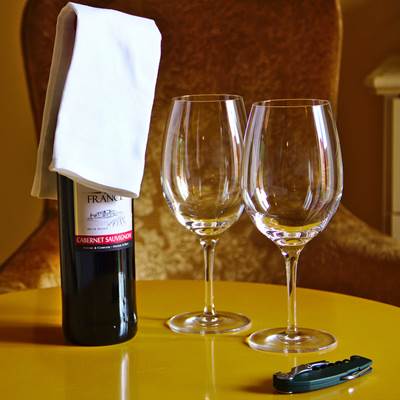 Image Courtesy: Debarshi Ray
Image Courtesy: Debarshi Ray
For centuries, France has had a close association with wine and it is safe to say that wine is not just another beverage to the French, but a culture unto itself.
This long history of winemaking in France, and the exceptional taste of the French regarding wine, have ensured that the country is considered as one of the best producers of wine.
From Greeks and Romans to the French
Much before the French, however, it was the Greeks who first made wine an element of their lives. Later on, the Romans adapted to it and so, with time, wine culture spread all over Europe. When finally it landed with the French, they perfected this drink and created a sophisticated culture around it. Thereafter, France remained at the forefront of wine production for centuries before it spread around the globe.
With rapid globalization in recent centuries, wine and the related production technology reached other parts of the world and some of them raised it to a whole new level. Ironically, in the process, some regions surpassed France in the craft, just like the Gaul inhabitants of Southern France had surpassed the quality of Roman wines centuries ago.
French Viticulture
So far, we have reviewed that during the history of wine, Greeks were the ones to make the architectural plans whereas Romans laid the foundation of modern winemaking; the French built not only a building upon that, but a luxurious estate. Of course, the Greeks were the first ones to start improving the taste and quality of their wines as well as to introduce viticulture and winemaking in the south of France around 2600 years ago. Some 500 years later, the Romans granted the right to produce wine to the people of Southern France. A couple of hundred years after that, the French had successfully surpassed the Romans in their quality of wines.
Amphorae Replaced with Wooden Barrels
Before wine was produced in France, it used to be transported around mostly in ceramic ‘Amphorae’. However, the French introduced wooden barrels instead for the first time to carry wine for transportation. They even cultivated grape qualities that could survive in a cooler climate outside of Southern France. Hence, eventually, this viticulture was spread to the territory that is modern Bordeaux.
Destruction of French Vineyards
As French wine grew in popularity, Roman Emperor Domitian, at the end of the first century, ordered most of the vineyards destroyed in France for the sake of protecting Roman wine. However, after a gap of 170 years, another Roman emperor restored the French right to produce wine and the French winemaking started its way to glory again.
Church ‘Rescues’ Wine
In a religious context, wine was a crucial and sacred element in various holy rituals of the Church including the most prominent – the Eucharist. So, after the fall of the Roman Empire, the Church took upon itself the protection of wine and for the next one thousand years, it would become the bearer of winemaking. This patronization of wine by the Church made it a common thing for all the religious inhabitants of Europe, as against being just an attribute of a single country or empire, erasing all borders.
Role of Monasteries in Winemaking
It is well known that numerous monasteries of the time accepted the burden of producing and improving this now sacred beverage. These small communities made an immensely huge contribution, with their religious passion, to invent and improve many types of wines, one of the most notable of them being Champagne. They also developed new varieties of grapes and made improvements to the existing winemaking technologies. So, while the center of the Church was Vatican, it was France that emerged as the first and most powerful agricultural and winemaking power.
Leave a Comment